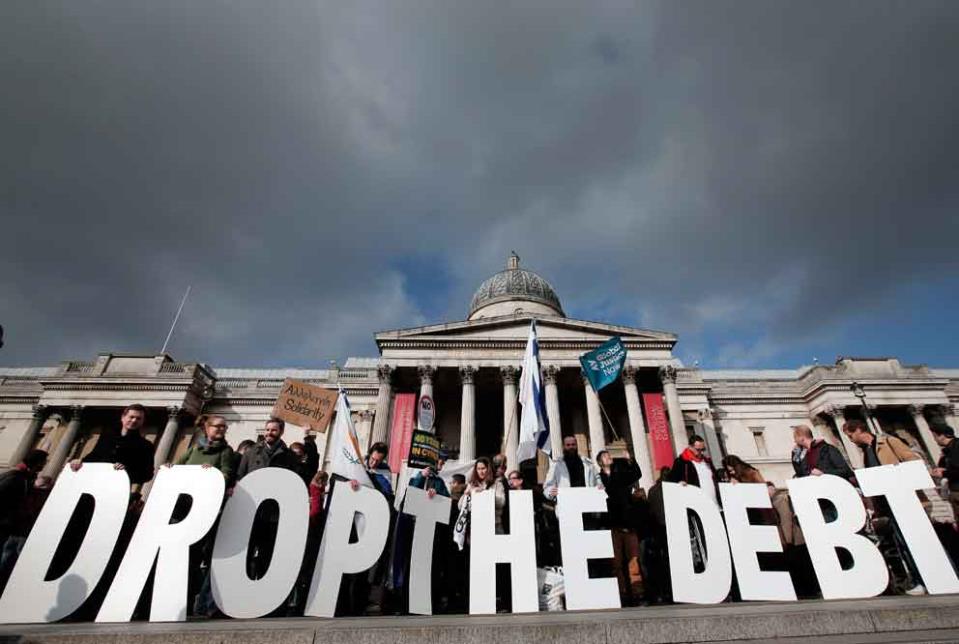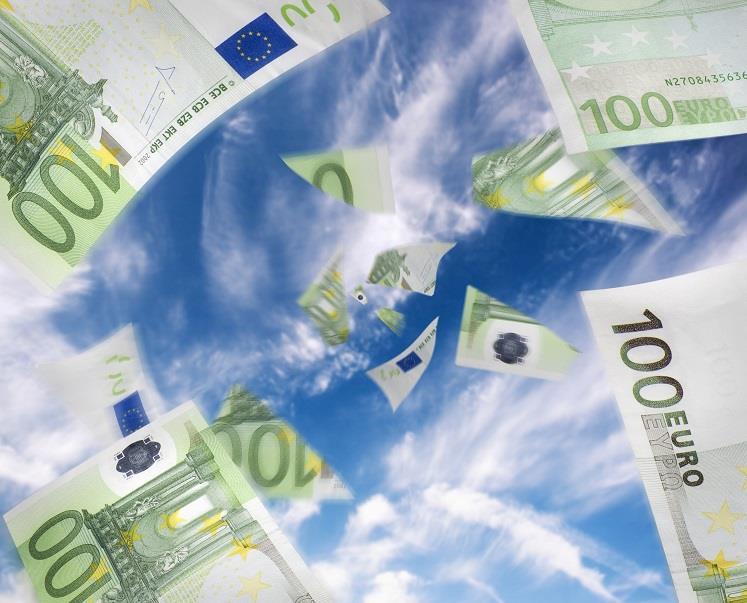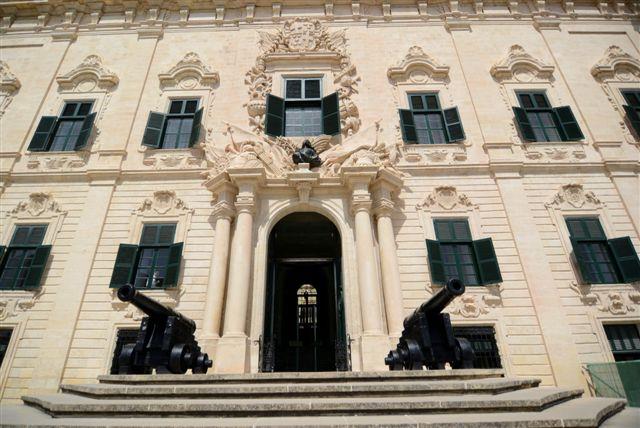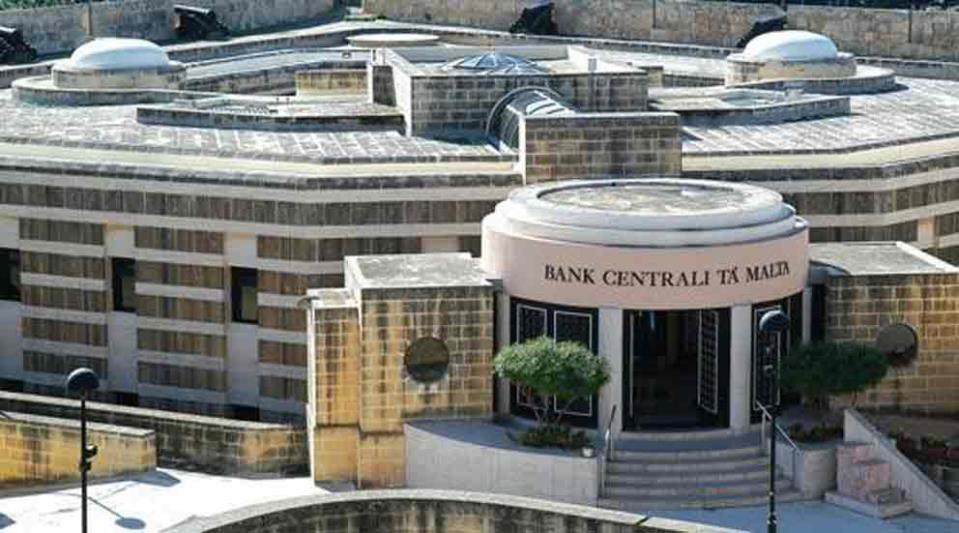Dan O'Brien, the chief economist at the Institute of International and European Affairs, says that while Malta's growth has not been spectacular, it has managed to buck the trend in Europe and achieve consistent and healthy growth. He speaks to Jacob Borg.
No. I think because of the nature of the crisis central banks have had to do extraordinary things. If anything, I would be critical of the ECB for not doing enough and not doing it sooner. The issue of quantitative easing (QE) is controversial, as we can’t be sure that it will be a successful policy. It has its downsides, but if you look at all the other major central banks who have tried it, it hasn’t been a disaster.
Some people said QE would lead to hyperinflation, that hasn’t happened. The countries that have used it have tended to recover more strongly than Europe. So, on balance the case for QE certainly exists and on that basis I think the ECB should have started QE sooner. I know that’s a political issue because it crosses over into all sorts of other areas, but the nature of the crisis that we have means central banks have to be radical, and that has political consequences.
So, if anything, the ECB in my view should be even more radical.
But if it does go wrong it is the individual member states that have to face the consequences and pick up the tab, so don’t you think the ECB policy creep is potentially dangerous, so where does it stop?
Not necessarily. The ECB is the one true federal institution we have. It issues the money. It prints the money. Effectively, a central bank can limit how bad things can get. For example, it can prevent a sovereign default. If the ECB wants it can prevent any sovereign default and that it a very big power.
It’s that power, which was very clear in Britain and America that the central banks would never permit a default, because they would always intervene at the last minute. So, that means that ultimately the ECB has enormous power and there are limited downside risks to radical action by the ECB.

Then how do you counter the German argument that if Greece knows the ECB is going to be there to pick up the pieces, it will be lax in its...
... No, no, that’s a different thing. The Greek scenario is much more of a fiscal problem. The Greek government went crazy before the crash, spent far too much money and that’s what accounted for nearly all the growth in the Greek economy.
Greece grew very strongly in the 10 years before the crash, but the reason it grew was not because it was becoming competitive or its companies were doing well, it was because the government was borrowing money and pumping it into the economy.
What’s happened in Greece over the past six-seven years has been a reversal of that. That has been extremely painful. If you get a pay rise every year you get used to it. If somebody tells you it is no longer affordable and cuts you back to what you were getting five or 10 years ago it becomes more difficult, as you’ve made commitments and can’t pay your mortgage. That is what happened with Greece. It is a fiscal issue, so I would differentiate the budgetary fiscal issue with Greece, from what the ECB is doing.
The ECB is maintaining the banking system in Greece, which is correct because if the banking system melts down, everything melts down. But I would make a clear distinction between the government budgetary side of things which is being funded by the IMF and by other member states with direct loans, that’s something distinct from what the ECB does.
Still, it’s interlinked. If the government’s finances totally collapse the banking system will collapse as well.
Yes, it is interlinked and there is overlap. It is not in anyone’s interests that Greece goes into further collapse or leaves the euro. Greece is a tiny country and accounts for two per cent of the eurozone GDP, yet for five years that tiny country has dominated political discussion.
The amount of energy that other member states have put into Greece is huge. There is a limit to how long that is going to go on. The EU cannot be forever in emergency mode because of one small country. Patience has run out, the ill-will towards Greece among member states is quite incredible.
Sooner or later people will come to the conclusion that, it’s not good if Greece leaves, but look at the costs and the benefits. Some countries have come to the conclusion that it’s better to cut Greece out. That will end the crisis; it may not be ideal but it’s the least bad option we have now. I think we are getting very close to the point where the majority of member states will take that decision and Greece will find itself moving out of the euro.

Do you think there is the potential of a domino effect, that if Greece goes other countries will follow suit?
The thing that frightens me is not that I don’t understand the financial system, it’s that I never met anyone who does. Nobody understands the consequences of Greece leaving. We simply don’t know how many channels and how big the effect through different channels will be.
So, we take the example of Lehman Brothers; nobody anticipated the collapse of Lehman Brothers that caused the biggest recession the world has seen since the first half of the 20th century. Nobody understood that.
My point about Greece is that now it looks more firewalled, because most of its sovereign debt is not in the banking system. That gives you some firewall, but there are other transmission mechanisms; if Greece leaves the euro and goes back to the Drachma there will be huge defaults, for both private companies and the Greek government.
There’s a lot of different things that could go wrong there and nobody knows for sure how big a shock there could be, so there’s a real risk that we get into another period of real financial panic.
So if nobody understands the nature of the beast - I’m not speaking about just Greece but the EU in general, how can you ever have a long-term vision? It seems like we are constantly in emergency mode and plugging up holes, always responding instead of being proactive.

A financial system developed, particularly in the first decade of this century that got much too big and got much too complex. Nobody understands it.
It’s interrelated. Before 2007 the conventional wisdom was that we have an efficient and sophisticated financial system that spreads risk, and because the risk is spread so well with intelligent people making these products, with sophisticated models controlling it all, that everyone thought we had a great financial system.
Well we now know that’s absolute rubbish. The system was much more fragile than anybody understood. We are what we are. We have this system and it has to be managed; we have to reduce the risk of it and control it to prevent it from having another crisis.
But you can’t just click your fingers and make everything perfect again. There has to be a period of re-regulation. We’ve seen things happen, not enough in my view, but this is an inherently complex and difficult situation and it will not be solved overnight.
Lately, governments and the ECB seem to be constantly responding to the markets and pandering to them, which once again is quite a short-term strategy.
What we know is that panic in financial markets affects the realeconomy in many ways. It means banks don’t lend to businesses. Businesses can’t expand and invest. It weakens demand in the economy. All of these things are
bad. We need to stabilise the financial system. Some people see that as pandering to the financial markets, and I understand how people can feel that, but ultimately people’s pensions, the money they spend on insurance premiums, this is what the financial markets are about. It’s this money that we all contribute and save and put away. It’s in everyone’s interest that the system is stable, safe and doesn’t collapse.
So if policymakers do things that look likes pandering to financial markets, I understand why people feel it’s mostly good for financiers, but it’s also good for the wider economy and society that we keep it stable.
Doesn’t that end up tying it to the five-year political cycle, meaning politicians will just try and do what is good for the short-term, rather than having a longerterm vision?
Yes, I think there is an element of that, but that is one of the weaknesses of democracy. That covers not just financial and economic issues, you can look at any issues – the four-five year electoral cycle has its weaknesses. As Churchill said, it’s the worst system apart from everything else. I think we could go too far in terms of attributing the current weaknesses to political short-termism. That is certainly a problem but there are certainly a lot of other issues as well.

Going back to the structure of the ECB, you have a rotating vote on the governing council; isn’t it ludicrous that you have a potential situation where tiny Malta will have a vote and Germany for example won’t?
I don’t think Germany will not have a vote, by convention Germany always has one of the six executive members. If you compare the Bank of England, the Fed, the Bank of Japan, they have much smaller committees running their central banks.
In Europe, we are not a sovereign state. For political legitimacy purposes it is important that all member states have at least some input. The downside of that is you get a very unwieldy system, so the governing council of the ECB is much too big.
But, because it’s necessary to give every country the sense that they have some control, it’s a choice between efficiency and legitimacy. Is it ideal? No. I think overall you have to have a system in Europe where each member state is represented to some extent; it may not be the most efficient thing, but for legitimacy reasons I think it is necessary.

Is the way forward ceding more control to the EU and other federal institutions like the ECB?
Well, I think the ECB already has in some way too much power. What we could talk about is the role of the European Commission for example in policing the budgetary side of things. I think there is a case to give the Commission more power and to ensure that the Commission treats every country equally, because there is a sense that a country like France is given more flexibility because it is big, than a country like Ireland because it is small.
That is a really big concern, if the Commission is seen to not be applying the rules fairly, the advantages of small countries like Malta and Ireland being in the EU is reduced.
Specifically about the ECB, the ECB already has a lot of power and I don’t think there is an area where the ECB needs more power. It’s decided on what it needs to do with that power; there are big divisions within the ECB, but I don’t think there’s an issue that the ECB doesn’t have the powers that it needs.

Do you agree with tax harmonisation?
I generally do not agree with tax harmonisation. The United States is an example, there are 50 different states in the US and they have very different taxes. You do not need fiscal harmonisation to make a monetary union work, as America proves, so I don’t see the particular benefit.
From a purely Irish perspective and possibly from a Maltese perspective, we are on the periphery. Sometimes we need the freedom to use our tax policy to offset the downsides of being on the fringes.
If we use the tax system intelligently to do that, I understand why some countries view that as being unfair, but my point is that we have the disadvantage of being on the periphery and we need some freedom to offset that disadvantage, and if we use our tax system intelligently to do that without doing things to destabilise other countries or take taxes from other countries which is problematic, then I think we should be free to do that.

Since Malta joined the EU it has attracted a lot of footloose industries such as iGaming and pharmaceutical companies. Is this too much of a short-term approach as potentially these companies are here today and gone tomorrow?
I don’t know enough about the specifics of the kind of investment such as gaming that you have attracted in Malta. Let me talk about the Irish case. Ireland has the biggest amount of foreign companies involved in the economy relative to its size than any other economy in the OECD.
We are very dependent on foreign companies based in Ireland, particularly in the technology and pharmaceutical sectors. It is possible they will leave, but when companies, particularly pharmaceutical ones, come and invest a lot in their plants, machinery and people, they tend not to just say, ‘oh I will go tomorrow.’
The nature of companies investing in a country tends to be quite a long-term decision. If the environment changes and it’s not so good for them, then some will leave and new ones won’t come. That’s always a risk of being dependent. It has been very good for the Maltese economy to attract foreign investment, and it’s been extremely good for the Irish economy.
You always need to be concerned about industries that may change or may decline quickly, and you need to be concerned about your own policy environment to make sure you are not doing something which causes that industry to go or stop the pipeline of new companies coming in.
To be prosperous comes with some risks. There’s always a risk that if you get rich you can become poor again. I think it is better for Malta to attract investment, make sure it is the right kind of investment and companies, and make sure the policy environment remains attractive to companies, meaning there will not be a big establishing outflow of investment at any time.

Are you surprised that Malta has consistently managed to buck the economic trend in Europe since the outbreak of the financial crisis?
I’m very happy, I think it’s great you are the second-fastest growing economy in the EU over the past seven year, and that’s a fantastic thing. A lot of things have gone right here. Unlike a lot of Mediterranean economies, you have a lot of flexibility. When I lived here I noticed how hard-working people are. In terms of attracting investment, successive governments have focused on where they could attract business, from cruise-liners, the tourism sector traditionally to the more recent types of investment.
If you get your policy right, you pick the right things to focus on and don’t make mistakes – I don’t analyse the Maltese – but if you don’t make mistakes and it doesn’t appear that successive government have made big mistakes then you can grow well.
Malta hasn’t been growing at a spectacular rate – it’s spectacular relative to everyone else because they have been doing so badly, Malta has had consistent healthy growth, and long may it last.

Can you explain why too much inflation is bad, and deflation is bad as well.
Well, too much inflation means that people do not know what will happen to prices next week, and their incomes are eroded. If their incomes are eroded they will say they want a pay increase to compensate for higher inflation.
That means inflation goes up and you get into this situation of higher wages chasing higher prices and nobody likes that, as it’s uncertain and it’s unstable.
Inflation is bad because you want low, stable prices.
Deflation is the other way, if prices start to fall and people’s wages start to fall, you also go into a spiral. We are nowhere near that yet because wages aren’t falling, but we do have very low prices and there is a risk – only a risk – that we could go into a downward cycle where prices fall and employer cut people’s wages, leading to a negative cycle of deflation.
In my view, the fears of deflation are exaggerated because wages are not falling except in the crisis countries.
As long as wages don’t fall and prices fall, then you are better off.
In my view, the deflation situation at the moment in Europe with the exclusion of some crisis countries in general is actually a positive thing, but there is a risk if it got to a situation where wages started being cut to follow the downturn in prices. We are nowhere near that yet, so at the moment if you have low prices or even slightly falling prices and wages are stable or going up then it’s a good thing. So, I am not worried about deflation.

How do central banks reach the figure of two per cent as being the target rate of inflation?
It is a totally arbitrary figure. It could have been three per cent, it could have been 1.5 per cent or it could have been four per cent.
The general view is that zero would be wrong because you need some degree of flexibility, because different prices change at different times.
Mobile phones are more expensive than they were in the past, but they do an awful lot more. In real terms you could argue they are actually cheaper, even if a handset now is more expensive than a handset five- six years ago when it was a simple non-smart phone. The argument is that to capture that you need to allow that for product improvement, you need to have prices rising a little bit, but at a stable level.
The figure of two per cent was quite arbitrarily arrived at.
Whether it is two per cent or three per cent, it is not that important. Just as long as people understand that prices are not going to rise by more than a few percentage points every year. People can plan their budgets, they know how much to seek in terms of pay increases, and gives people and companies that sense of stability.